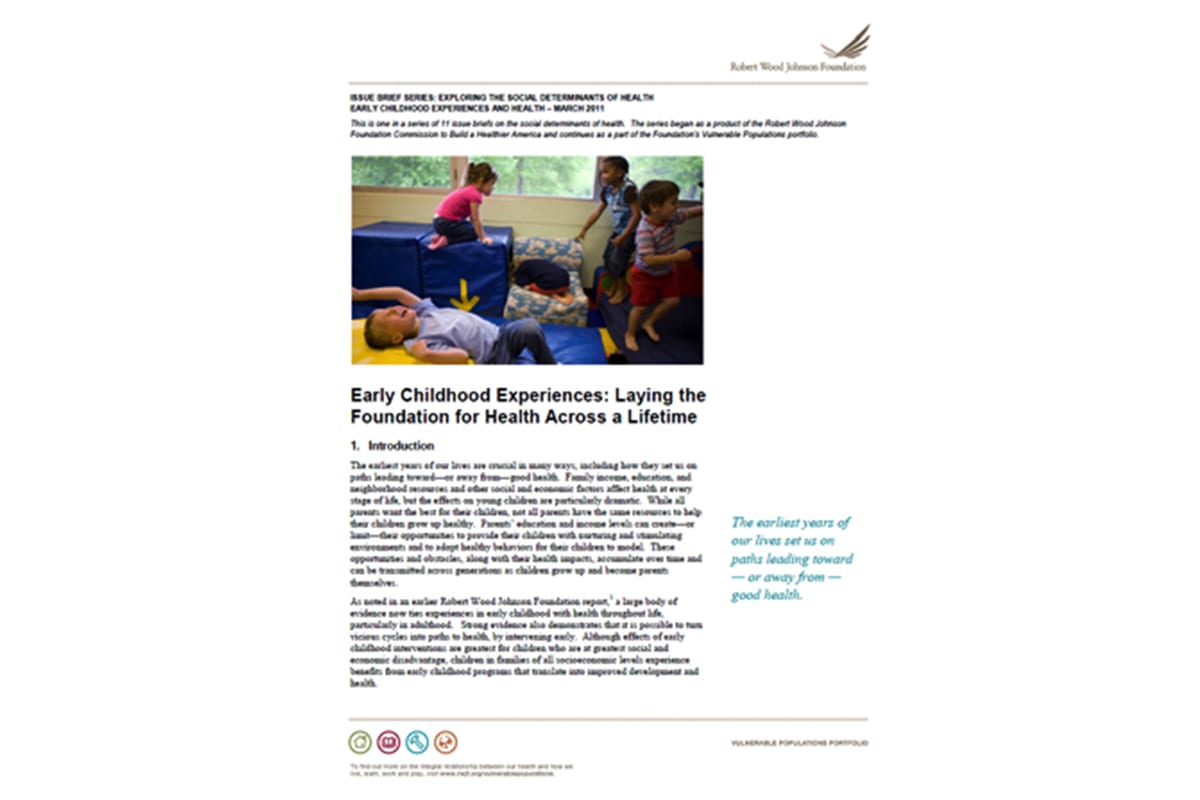Looking Beyond Health Care—the Social Factors That Affect Health
June 2, 2011

The Robert Wood Johnson Foundation's issue brief on early childhood experiences and health.
We know that education is important, that a better job and more income can improve our lives, and that living in a neighborhood with sidewalks and grocery stores is convenient.
What we don’t often consider is how all of these factors can directly affect our health.
This spring, the Robert Wood Johnson Foundation (RWJF) set out to explore that connection with a three-part webinar series and eleven new issue briefs addressing how where we live, learn, work and play shapes our health.
Some surprising truths emerged during the webinar series, which reached over 3000 total attendees:
- Education and income impact health: Steven Woolf of Virginia Commonwealth University’s Center on Human Needs demonstrated how the County Health Calculator can predict the number of deaths that could be averted if income and education levels were higher in a given area. (See the Education and Income issue briefs for more on the link between education, wealth and health.)
- Health disparities between races and ethnicities are significant – even after controlling for income and education. This suggests that alleviating poverty, or improving educational systems alone won’t be enough to close the gap and that we must continue to examine the complex legacies of American racial discrimination. (See the Race and Socioeconomic Factors issue brief for more.)
- Strong communities matter: Even witnessing violence can affect a person’s health, sapping their motivation and capability to engage in healthy activities. (This connection is explored in-depth in the Violence and Health issue brief. )
The conversation continued on Twitter at hashtag #healthissocial, where participants discussed and shared information, during the webinars and after the fact. And more broadly, these webinars are part of an ongoing conversation that’s continuing among across the country as citizens, health professionals, policymakers, and nonprofits work to confront some of America’s most serious health issues where health starts – in our communities.
Watch the 3 webinars or download the issue briefs here:
- Webinar 1: What Shapes Health?
- Webinar 2: Looking Upstream: How Income, Education and Racial Inequalities Shape Health
- Webinar 3: Place and Health: Why Conditions Where We Live, Learn, Work and Play Matter
